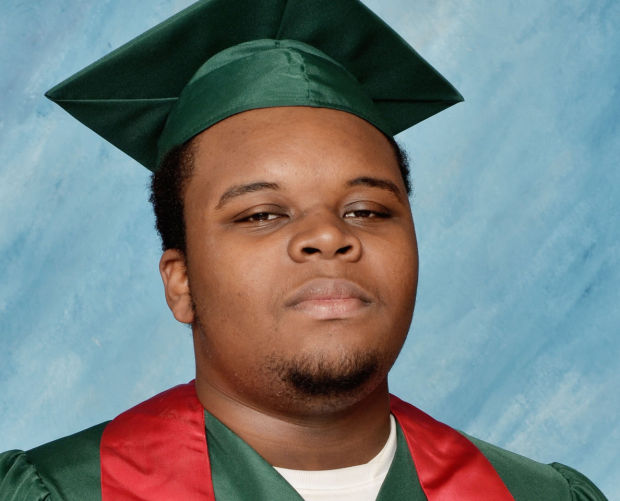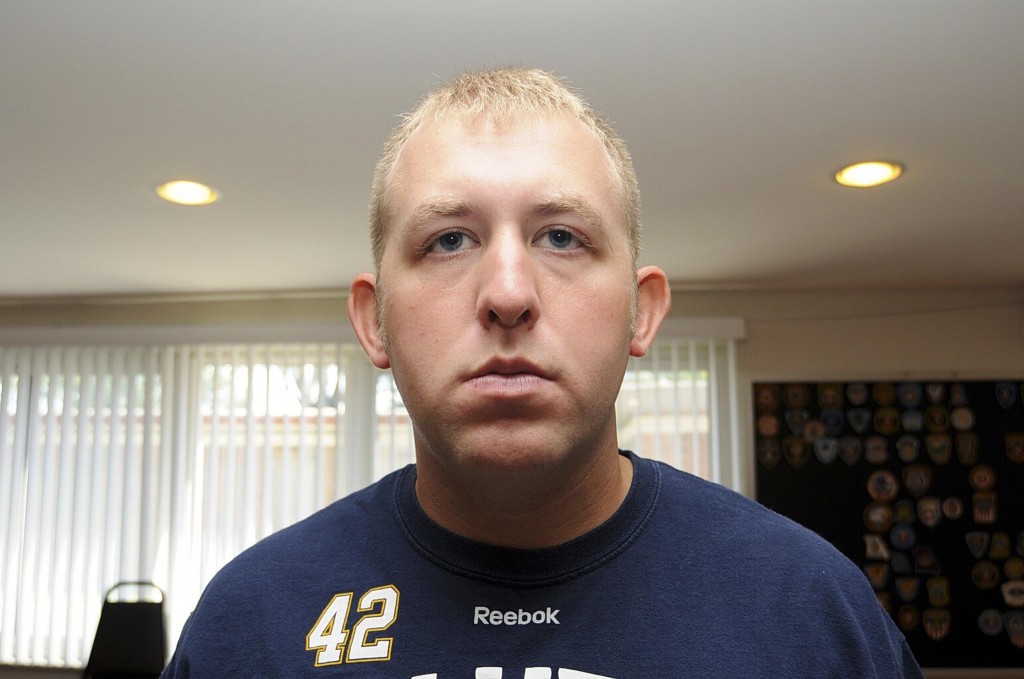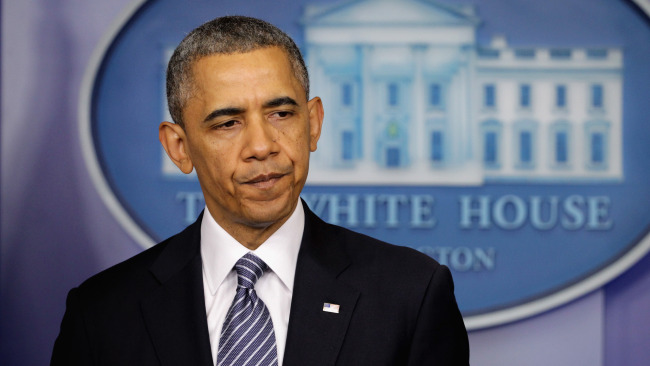Michael Eric Dyson’s “Where Do We Go after Ferguson?” made diaCRITICS editor Viet Thanh Nguyen think about how hard it is to change attitudes about race.
[If you’re living in America, then you most likely have heard about the unrest in Ferguson, Missouri, where a white police officer, Darren Wilson, shot a black man, Michael Brown. If you haven’t heard about it, read Dyson’s article, which conveys the importance of Ferguson to America and its racial attitudes.]
I rarely talk about politics over the holidays, but I had a heated conversation over Thanksgiving dinner about Ferguson with an in-law (a southern white man of libertarian convictions, pro-responsibility but also anti-cop, would never consider himself racist, especially as he is partnered with a Vietnamese woman and the father figure for her sons) where many of the issues addressed by Dyson’s eloquent column came up. I said some of the same things as Dyson, but I wonder if it made any difference.

My in-law probably felt the same way about me as I did about him, that our world views shaped how we saw this issue in ways that were unchangeable by what each of us considered rational argument. We came at this from very different beliefs and experiences. He recounted being assaulted by blacks in the south, which obviously left a deep imprint on his perception of them. I didn’t recount how the only time I’ve been called racial slurs to my face in the US has been by black kids, which didn’t make me anti-black because I didn’t blame them for what they said. We were both palpably angry, although not with each other, I think. Maybe with how intractable the situation of deeply ingrained history is or seems to be, how it repeats itself again and again, and how people with different world views interpret causes and solutions in radically incommensurate ways.

Dyson gets the pessimism of that, the sense that these race problems aren’t changing anytime soon, regardless of a black president. Solutions are to be found at the level of political struggle and policymaking, but meanwhile, perhaps each of these personal conversations can also move things by a millimeter, so that eventually a new generation can move a mile.

What does this have to do with Vietnamese people? Many of my teenage nephews and nieces on my wife’s side were watching this conversation unfold. We had asked them whether they were keeping up with the news from Ferguson, and whether they were affected by racism. No, they said. They were born in America, grew up in San Jose or the suburbs around it, where the culture was diverse and where there were many Asians. They had never experienced racism. So should Ferguson matter to them? What does the death of a black man mean to someone who is not black and who has never felt racism directed at them? Do they look at black people like white people look at black people?
To be Vietnamese in America–to be Asian in America–is to benefit from the racism directed against blacks. Because Americans as a whole are more fearful of blacks, other minorities get the benefit of the doubt, from white people as well as from everyone else. Asians as a whole are seen by whites as the model minority, well-behaved and hard-working, unlike blacks, or so it seems. Even those Asians who are not the model minority, the ones who live on welfare and don’t go to college and join gangs, are not as bad as blacks, or so it seems. The immigrant who comes to America may be strange and different, but as long as he or she is not black, he or she enters America with an advantage over black people–the advantage of not being black. This advantage is passed on to their Americanized children.
It used to be that racial domination in American society meant that people were defined as white or nonwhite. Now one could argue that racial domination is defined as being black or nonblack. Under the old regime, Asians were nonwhite, and therefore lesser than whites. But in the new regime, Asians are nonblack, and hence oftentimes aligned with whites against blacks. It’s an easy advantage to take, to feel that one is not the object of racism, while participating in a system and a society that allows one to enjoy the profits of racism directed against blacks.
For Vietnamese people not in America, looking at these events from afar, I wonder what the message of Ferguson is. It must be that America has a race problem. But beyond that, what? Is it that black people are the problem? Or that white people are the problem? Or that if they, as Vietnamese people, come to America, regardless of how they may struggle, they can at least be guaranteed the instant privilege of not being black? Like many privileges, this one is invisible. It’s easy to take it for granted, not even to be aware of it. But if we do want to move that hard mile, millimeter by millimeter, then we need to see those privileges that guarantee our complicity and our silence.
Viet Thanh Nguyen is a Los Angeles-based professor, teacher, critic and fiction writer, author of Race and Resistance: Literature and Politics in Asian America. He is the editor of diaCRITICS and the author of the forthcoming novel The Sympathizer, which begins during the days of “Black April.”



Agent Orange was sprayed in Vietnam between 1961 and 1972. Vietnamese and Vietnamese Americans had been exposed to the spraying. While Vietnam veterans in New Zealand, Australia, Canada and US have been treated and compensated for their illnesses, the US government maintains that Agent Orange has never caused harms to Vietnamese–that is, the people who sprayed Agent Orange can get sick from Agent Orange, but the people who were sprayed upon were decided they cannot get sick from it.
Can you say why Vietnamese Americans do not know they were discriminated against?
There have not been a lot of studies done on the impact of Agent Orange on Vietnamese Americans, and those who may have been affected because of their years in Viet Nam are often reluctant to speak in public. I think this is due to two reasons. One, many Vietnamese Americans don’t want to be seen as being ungrateful to the United States. Two, some Vietnamese Americans think that the furor over Agent Orange is a communist strategy to discredit the United States.
As for your question about why Vietnamese Americans may not they are discriminated against–they do know they are discriminated against if the action is directly about their race or culture. But my article argues that they are not always so sympathetic to the experiences of other minorities and may not see a connection between, for example, the racism directed against African Americans and the racism they themselves experience or are exempted from.
It is unfortunate that some young Vietnamese Americans believe “they are not affected by racism.” Understandably, growing up in an environment “where the culture was diverse and where there were many Asians” may have sheltered them from racism. Vietnamese have been victimized and traumatized for so long; understandably, why would we want to deal with more problems? Why would any Vietnamese American who have received the “gift of America” want to bad-mouth America? Isn’t it easier to just accept those racial attacks as minor momentary distractions? Nevertheless, thinking racism doesn’t affect us is delusional. Vietnamese Americans should remember that Americans extended their racial hatred to Vietnam where “civilized” Americans mutilated, raped, and murder over two million innocent civilians. What compels one race to commit such barbaric acts on another group if not racial hatred? We only need to question the motive of the supposedly “good” Americans. Had Vietnamese been Caucasians would Americans have committed such atrocities in Vietnam? That same hateful mentality against Asians continues in the U.S. today; the brutal murder of Ly Minh Thien in 1996 is one proof.
We may want to “move that hard mile,” but the “millimeter by millimeter” needs to start with people recognizing the deep racial hatred that moved Americans to commit genocide and ecocide against the Vietnamese people. Young Vietnamese Americans should re-examine their beliefs about not being affected by racism; they need to move from delusion to reality.
Great to hear from you, Thai Anh! You’re going to love my novel.
http://www.oregonlive.com/today/index.ssf/2014/11/photo_of_hug_between_portland.html#incart_story_package
Dear Việt,
“and so it seems” and “I think” you are ranting and raving again about the inequality of the races and how privileged the Vietnamese have become on the back of the black experiences. Not knowing your world view, all I can surmise by your writing, and specifically: “Solutions are to be found at the level of political struggle and policymaking” and perhaps by teaching Ethnic Studies or Literature you’ve been imbued with the militant streak, exhorting people to foment revolution against the status quo (read whiteness). Although the status quo has fast loosen its footing.
I’m not sure at this juncture, digging the divide between black and white by including the Vietnamese as the Asian model minority sitting astride the shoulders of the black struggle does not help your cause an inch or even a ‘millimeter’.
You just have to accept the fact that as long as there are races, class, habitual and cultural differences, there bound to be racial incidents. I’m sure whether one realizes it or not, even after more than a half century of “separate but equal” doctrine, most people in in American society still prefer and live the motto ‘birds of a feather flock together’ Think about it as it relates your case and take me for example.
I have taught public schools for more than 30 years, and a dozen of those years in an inner-city school where blacks make up an overwhelming 40 percent of the student body. I have fought (fist fight) against, cohabited and dated blacks, but in the end I’m still a part and parcel of the Vietnamese makeup. Because I was born a Vietnamese and now have become Vietnamerican do I need to go out there and paint my skin black, too? President Obama is half white, does he need to relinquish/repudiate his white background to be popular?
The answer to the last question seems to be a stealthy ‘yes’ and like your premise of this piece, something is terribly wrong in all of this. “Something is rotten in the state of Denmark/Missouri” ( ̣Hamlet, Act 1 Scene 4)
BTW, Please take a look at Jonny Nguyen photo in The Oregonian in the link above.